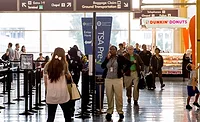Mumbai Killings Impact Business Travelers
Zalud’s Blog received an executive briefing from Jane’s, the London-based military and terrorism research firm, that showed how Americans, British and Israeli people are now being targeted. Jane’s experts also pointed out that Saudi Arabians probably were bankrolling the terrorists.
Chief security leaders need to take some additional action so Security asked Bruce McIndoe, president of iJET Intelligent Risk Systems, for his advice.
“The event has forced most companies to review their safety and security programs in that region – and others. Many companies do not have country-specific (or city) emergency plans. In addition, companies are re-evaluating their hotel programs and determining if they should continue to direct travelers to their existing preferred properties or change their preferred properties. Likewise, companies are reviewing their facility security measures to adjust them to this new threat profile.
“Terrorism is a low probability, high impact threat to operations. As such, companies are looking at mitigation strategies and cost balancing those against this type of threat. In many cases, investments are more “confidence builders” for employees and customers rather than hardened security measures. The key areas that need additional steps/ safety investment are the fundamentals: a solid Location Emergency Plan addressing employee notification and evacuation, etc.; and training employees so that they know what to do in the event of an emergency, be it a fire, bomb threat, workplace violence, weather issues or terrorist attack. Then, these basic, fundamental steps can actually extend beyond the low-probability, high impact threats to the very real types of operational threats that exist on a daily basis.
“A traveler is more likely to be killed flying on a commercial airline (1-in-9.5 million) to
“If a traveler wants to minimize their exposure to a terrorist event, they should stay in a room away from the front of the hotel, away from public streets and between the 2nd and 7th floors. When something does happen, do not rush to the scene, linger in the area or gawk at the situation. Many people were killed during the bombing at the hotel in
At the end of 2008 Jane’s Country Risk has been measuring stability for a year. On the 1st anniversary of the production of the stability ratings, Jane’s examines how global stability has changed.
Jane’s Country Risk Ratings gauge the level of stability in a country by measuring 24 factors that together comprise the environment in which stability occurs. Rather than attempting to measure the probability of a particular threat occurring, such as a coup d’état, the risk ratings attempt to measure the factors that together could lead to such an event occurring, such as military support for the political status quo and the satisfaction of the military.
Christian LeMiere, editor of Jane’s Country Risk explained, “
South Ossetia has also seen its stability increase, albeit with substantial movement in the run-up to and during the August conflict between
Despite its worsening security environment,
With 2008 delivering a range of varying stability changes throughout the world, some more expected than others, caution would perhaps be advisable when attempting to forecast any further adjustments in 2009.
One overriding factor that will affect all countries will be the global liquidity crisis and lower oil prices. Already this has had an impact on states such as
Looking for a reprint of this article?
From high-res PDFs to custom plaques, order your copy today!





